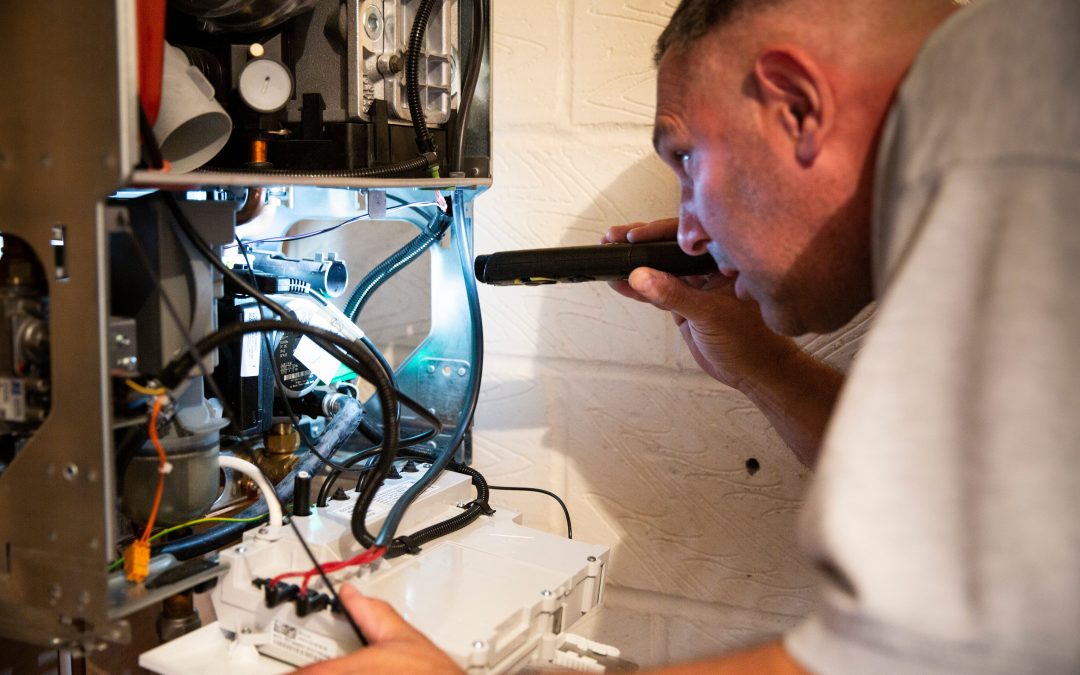A reliable and hard-working boiler is an essential element of your home, some would say it is the heart of the house. It is the tool that ensures the circulation of your house is fully-functioning, that your water is hot and your radiators are warming you up on a chilly day.
Like with anything that is this hard-working and essential, it needs TLC and lots of attention. And let’s be honest, as much as our boilers are important, we would much prefer to spend our money on more exciting things, like holidays and new furniture.
Therefore, we have created this blog article to help you maintain your boiler and keep it running for as long as it is safely possible.
So, how can you ensure your boiler lives a long life?
- Put your annual boiler service in your calendar
All boilers must be serviced on an annual basis – an engineer will come out to your home and ensure your boiler is running smoothly. It is vital these services are carried out as it ensures your boiler is safe, annual services prolong your boilers life as it is checked regularly and ultimately saves you money over-time because it decreases the chances of serious issues developing.
You wouldn’t miss your car’s annual service/MOT so why is it any different for your boiler?
- Fire up your heating regularly
Even during warmer months, it is important to turn on your heating for short periods of time on a regular basis. This is just to check it is all working and ticking along nicely. By switching on your heating once a month the system is kept moving, water is circulated and the thermostatic radiator valves don’t seize up. If your heating is turned off for long periods of time air can collect potentially causing air locks and when it gets to the first cold day of winter your boiler has to work really hard to start up again.
- Check your radiators regularly
Radiators often need to be bled or flushed to ensure they are working properly. Here is a really simple & useful video explaining how to bleed a radiator – https://www.youtube.com/watch?v=0IP54Kbgnv0.
How do you know if a radiator needs bleeding?
Simply feel the radiator from the bottom to the top, if the bottom is hot but the top of the radiator is cold, this means there is air in the radiator that needs to be bled out.
Think opposites for a power flush! If your radiator is hot at the top but cold at the bottom this means there could be sludge build up, meaning it will need a power flush.
- Under pressure!!
Over time your boiler may lose pressure (particularly after the radiators have been bled), a decrease in pressure will stop your boiler from working. Readjusting the pressure is a really simple task, take a look in your instruction manual and there will be clear instructions in there for you. That brings us onto our next point…
- Don’t lose your instruction manual!
When your boiler is installed keep your paper work and instruction manual together so that you know where it is if you ever need it. Also, the contact details of your boiler company so that they are at hand if you ever need assistance.
- Know the symptoms of a poorly boiler
Whenever you get a moment simply take a look at the exterior of your boiler, are there any leaks, cracks or any sooty/dark marks on it? Is it making loud, clunking noises?
If so, it’s time to call out your boiler engineer. It’s best to catch the symptoms quickly to prevent a full breakdown.
- Blue is the magic colour
Make sure the flame in your boiler is glowing blue – on older boilers you may be able to see this flame so if it is a yellowy/smoky colour it is important to call out your gas safety engineer straight away.
By following these steps, you will prolong the life of your boiler, saving you money over the years and keeping your home lovely and warm.
Chaps
We have a team of reliable, gas safe and OFTEC qualified engineers for all your boiler needs! Contact us to book in your installation, annual service or if you need an engineer imminently for boiler repairs.

